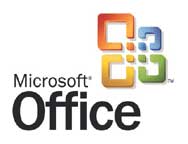 Microsoft Office is the dominant player in the field of word processing; however, a wave of new software has recently emerged online. This movement could potentially weaken Microsoft Office in the future.
Microsoft Office is the dominant player in the field of word processing; however, a wave of new software has recently emerged online. This movement could potentially weaken Microsoft Office in the future.
Recently, a wave of new software has emerged on the internet, aiming to supplement or, in some cases, replace the basic tools used by office workers.
Software like Numsum, Writely, and Zimbra are part of a new generation of applications that appear similar yet different from Office. They exist as services on the internet rather than installed software on computers.
According to some, this movement could weaken the advantages of Microsoft Office in the future. However, with annual revenue of $11 billion, Microsoft Office is unlikely to be overly concerned. PowerPoint, Excel, and Word are essential tools for most users, and they will find it hard to give them up.
Nevertheless, as the internet continues to develop, the nature of computer usage is also changing—a fact Microsoft has acknowledged by announcing plans to develop online services to support its software.
The new online software shares many common features. First, they have a simple interface and are easy to use. This contrasts with a drawback of the Office suite: too many features that most users only utilize a fraction of.
Online software also leverages their low-cost advantages to attract small businesses and individual users. Typically, their basic features are free, while advanced functionalities require payment. These online programs also have an important common characteristic: the ability to share.
Traditionally, the only way to share information with colleagues was to send files as email attachments. However, documents stored on a server can be accessed from anywhere by anyone, provided they have permission. At least in the short term, no software of this kind has the potential to compete with Office.
In fact, most companies argue that their software can coexist with Office, offering an alternative way to work online.


















































